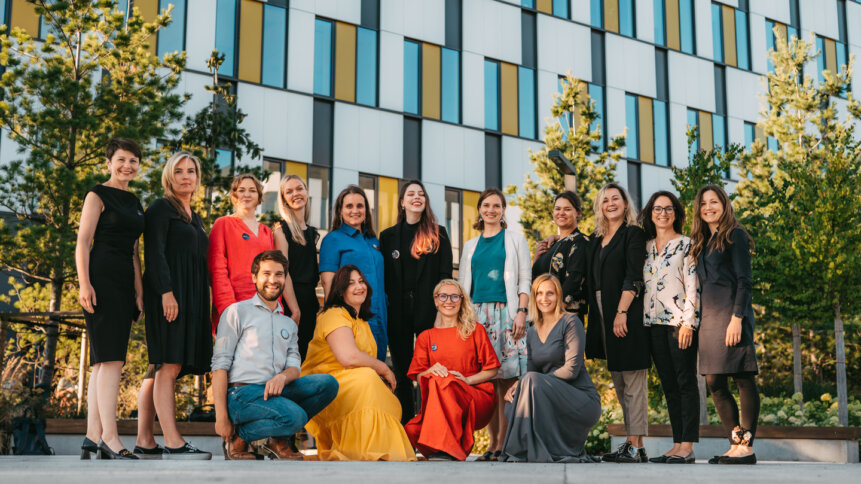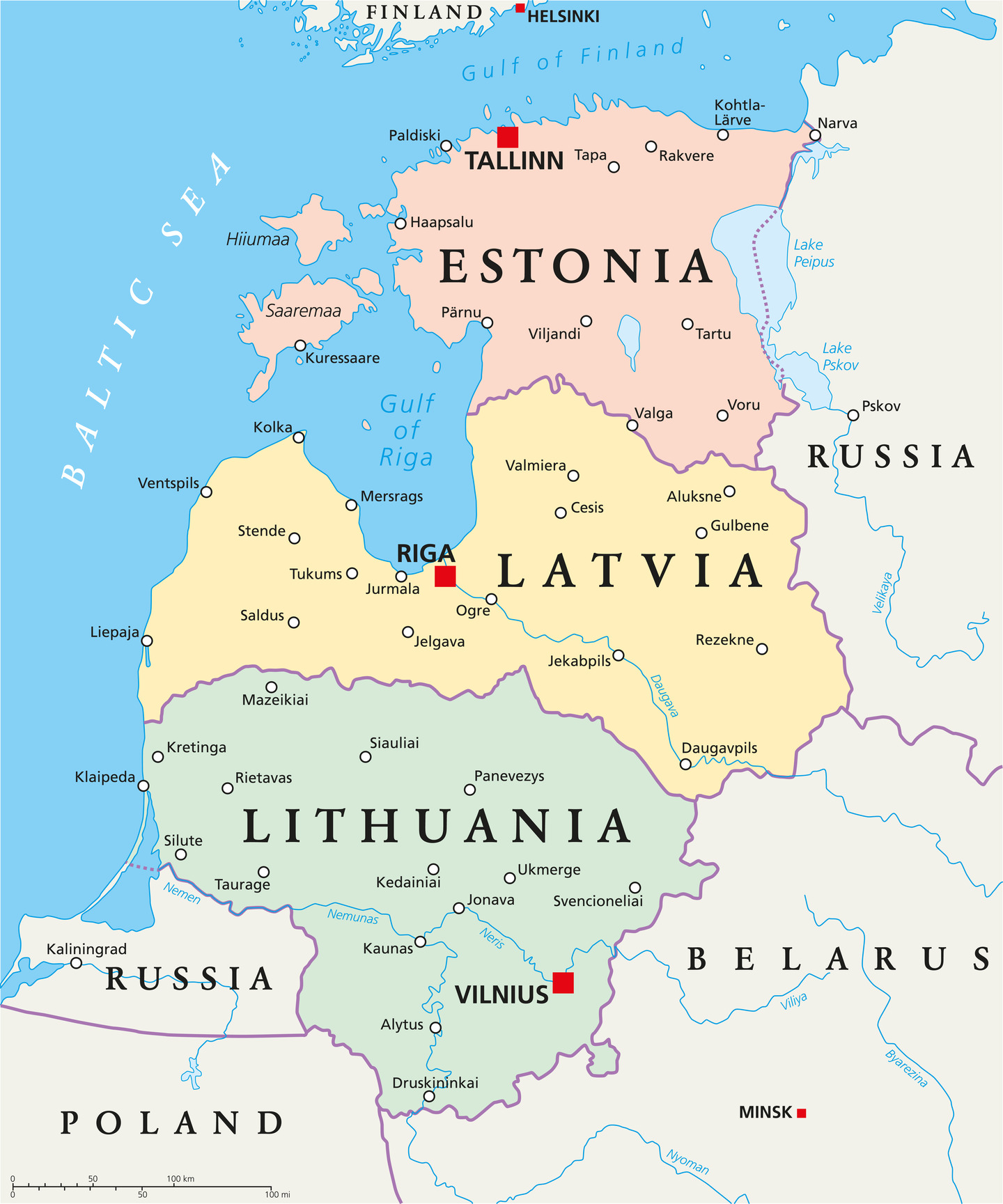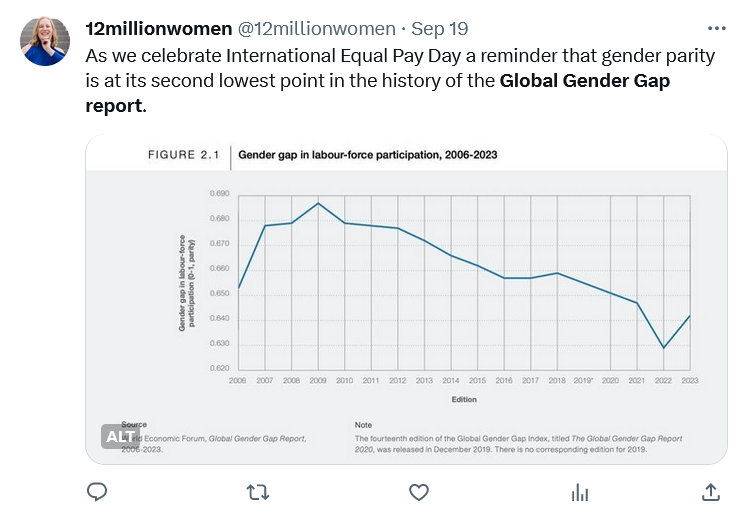Women in tech: how men can help

• Women in tech are currently set to take over 160 years to achieve equity.
• Men in tech can help, and if they can, they should.
• Getting more women in tech makes not only ethical sense, but financial sense too.
Latvia may not be the first nation that springs to mind when you picture Eastern European technology hubs. It’s probably fair to say that both Tallinn in Estonia and Vilnius in Lithuania are better known in the wider Western world for their expertise in tech (techspertise? Nnnno). But Latvia, and in particular its capital, Riga, may be about to surprise you. In terms of the promotion of women in tech, Riga has an advanced program to help get girls and women into tech, into their own startups, and even just to improve their digital skills for the modern working world. It’s called Riga Tech Girls, and in 2023, it’s taking an important step.
While until now its training has been largely based within Latvia, this year it’s moving beyond the country’s borders to offer training in its core subjects online, and – perhaps crucially in terms of broadening women’s tech horizons in the region, it’s offering its training in English for the first time.

Latvia – new home of the fight for women in tech?
We met up with Pauls Silins, who’s both the only man on the team at Riga Tech Girls, and in charge of the new online training program, DigitalABC. Pauls had a particular message, as the only man in the Riga Tech Girls team – that the burden of closing the digital skills gap has been till now unfairly shouldered largely by women in tech themselves. He also espoused the idea that men, as the traditional majority of the tech workforce, need to do more to further the opportunities that women in tech – and indeed, women trying to get into tech – have to join and scale the ladder.
Women in tech: what role for men?
THQ:
Hi Pauls. This is a screamingly obvious question, we know, but if it were obvious to everyone, there’d be a lot more women in tech than there are. Why is it important for male advocates to support women in tech movements? What’s the USP that they bring to the struggle?
PS:
From my point of view, my whole life I’ve been in situations where the majority of people in the room are women, and I’ve never really felt it should be any other way. Now, most of my career has been in a more culture-based field, the events field, and most of the people working in that field are women. So when I look back at all the powerful people, the strong women who have surrounded me throughout the years, it just doesn’t make sense that they wouldn’t be in tech as well.
It’s like there’s a cultural decision made – the events industry in majority-women, but the tech industry is majority-men. Why should that be the case?
Of course, historically, there has been this patriarchy, we have to admit that and it defines the situation as we find it, but we need to work on changing that. Because at the end of the day, it just doesn’t make sense. We need to have as many able people working with us as possible, because we’re all driving towards the same goal of making our collective futures better.
Women in tech: speaking up, following-through.
As for male advocates, the reasons why they’re important depend on where your goals lie, or what your agenda is. But even if you are more profit-driven, gender inclusivity is a win-win situation. Because of course, in tech, certainly in Latvia, there are a lot of companies that are lacking the skilled tech employees who could fill the roles that need to be filled in order for those companies to thrive and grow.
If you’re only looking for men to fill that gap, you’re losing out on half of the population. And once again, that simply doesn’t make sense. So you need to have women joining the tech field (and other fields too, it’s not that tech is the only one where there’s a discrepancy in this). But if we’re talking about tech, the status quo society is unbalanced by the pre-existing social and technological patriarchy.
Women have fought for equal rights before. It’s the 21st century, it makes no sense that they should still be fighting alone. Men have to be part of this too, to be on the other side of the equation, to balance it all out. The women in tech movement does not have to be gender exclusionary, and so it shouldn’t be gender exclusionary.
READ NEXT

Women in Tech: barriers to inclusion
The World Economic Forum’s Global Gender Gap Report of 2023 said that at the current rate of progress, it will take 162 years to close the political empowerment gender gap, 169 years for the economic participation opportunity gender gap, 16 years for the educational attainment gender gap, and 169 years for the economic opportunity gender gap.
By participating in the movement to empower women in tech, men can at least make the gap smaller, and the number of years smaller between where we are now and the point of substantive equity.

The position of women in the workplace is worse than it should be by quite some margin.
Women in tech: the great great great great great grandmaid’s tale?
THQ:
169 years. If we take the general definition of a generation as 30 years, that’s over five generations-worth of struggle. So our great great great great great granddaughters might live in a world where the tech industry has equal opportunity. More likely their daughters finally reach the Promised Land.
Imagine trying to tell someone here today that their aspirations will be out of reach for five whole generations – and yet that’s the situation illuminated by the current data on women in tech.
Given that both society at large and the tech industry particularly is and historically has been a patriarchy, what can men bring to the equation that can help to speed up the closing of those colossal gaps in equity?
PS:
First of all, we can speak up, we can acknowledge the situation and say this is not something you can simply ignore. It’s not something that will go away on its own and it’s not something that will fix itself.
Women, fighting alone against the forces of the ingrained system will fix it, but such is the strength of the system it would take them 169 years – and that’s really not an acceptable answer!
Also, if men have benefited from the patriarchy and are leading companies right now, they need to show an example, include women in all the major decisions, act as mentors to advance women in tech, rather than as forces of the traditional patriarchy, only hiring people like themselves.
Building pathways.
Help set up pathways so that women in tech and women coming into tech are equipped with the necessary knowledge to blaze a trail that other women coming in can follow.

The Riga Tech Girls take on a hackathon challenge.
What we’ve found is that setting up programs that support women at all the levels of tech, from digital literacy to setting up their own tech startups, can be extremely useful. Our latest training is DigitalABC for NGOs, which is gender inclusive and open to everybody, but we have other programs, like Discover Tech. That’s an introductory program for women, and originally, it was just for women. Now it’s gone inclusive too, but originally it was meant to introduce women who were interested in the tech field to different aspects of that field.

Pauls Silins, of Riga Tech Girls.
That was important, because if you talk about tech to people who are not in tech, all they think about is development and programming, whereas tech itself is actually much bigger and broader than that. So by supporting these programs, by making and following-through with pledges that they’ll support such programs, men can use the power of the patriarchy to help women transition into the tech field, to learn more about it, and to become a part of the tech industry.
Follow-through is crucial. Some women will tell you that they’ve heard lots of positive words before, but when it comes to the crunch, either the money or the will has run out. So we can help by doing as we say we’ll do, being advocates, and being allies for a much more diverse tech industry.
In Part 2 of this article, we’ll delve deeper into men’s role in reversing the damage of the tech patriarchy, and explore a little more of Riga Tech Girls’ work, including its latest program for NGOs.









